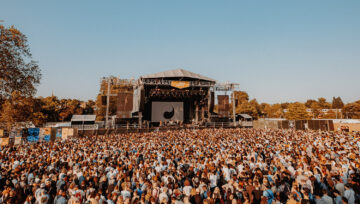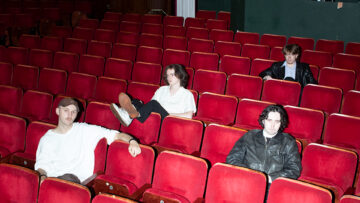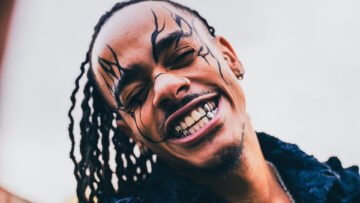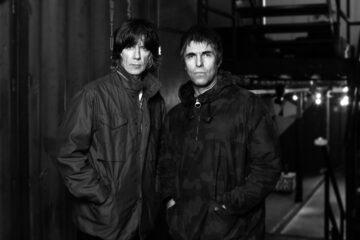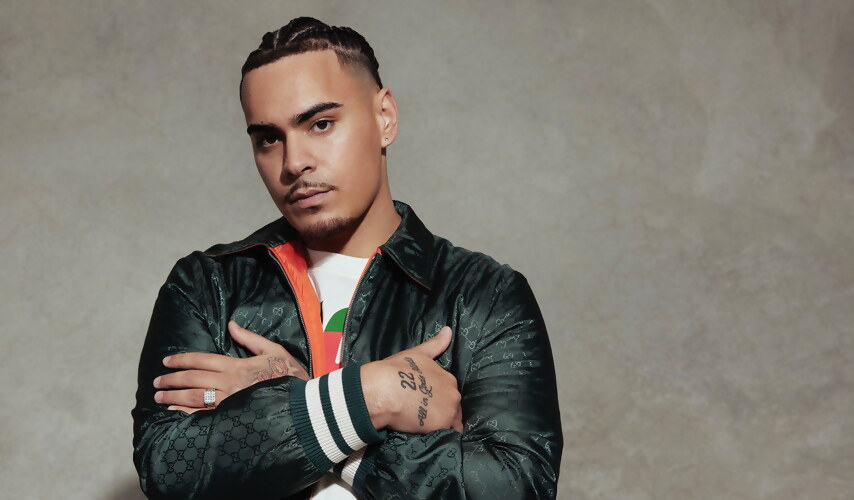
I first came across Day1 during a YouTube compilation of Australian rap and drill, including the likes of Hooligan Hefs and Onefour. The common theme I recognised was how these rappers proudly represented their multifaceted identities. These rappers’ accents aren’t just Australian, but are equipped with a slang and flavour recognisably associated with their areas (which they call their ‘hoods’).
Day1’s latest singles, international remix ‘Mbappé’ featuring JAY1, Gambino La MG and Kahuhx dropped mid-December, just before the track’s namesake played his second World Cup final. The track shows Day1’s versatility and scope of rap and the pockets certain songs can fill.
In ‘Mbappé’, Day1 steps away from a usual relaxed rap and singing flow to spit along a fast-paced club-type beat produced by Madrids Nersobeats. Day1 and his fellow Australian Kahukx meet JAY1 and Gambino La MG in the middle, essentially bridging audiences while making a song perfect for the spread of the rappers’ generation. They flex their flows and respective position in the game, while riding the skippy run of the beat.
Speaking to Day1, I got an insight into his upbringing, his influences (including the similarities of our ends and disenfranchised cultures within these countries), and how he intends to establish a recognition of his scene. He wants to put South Brisbane on the map – and is going about that by focusing on building his musicality to a point you can’t ignore. I see Day1 as very intentional, clean hearted, living and working in recognition of his successes, hoping to inspire others.
How’s life? How’s the music going?
Life’s been good bro, straight up. Definitely since the music started picking up. I can’t complain, it’s good.
I love it. You were last in the UK in June. Why were you here and how did you find things?
I linked up and worked with producers like Ghosty, artists like Pa Salieu, S1mba. I was kind of just networking, working on connecting bridges between Australia and the UK. Because we’ve got very similar cultures.
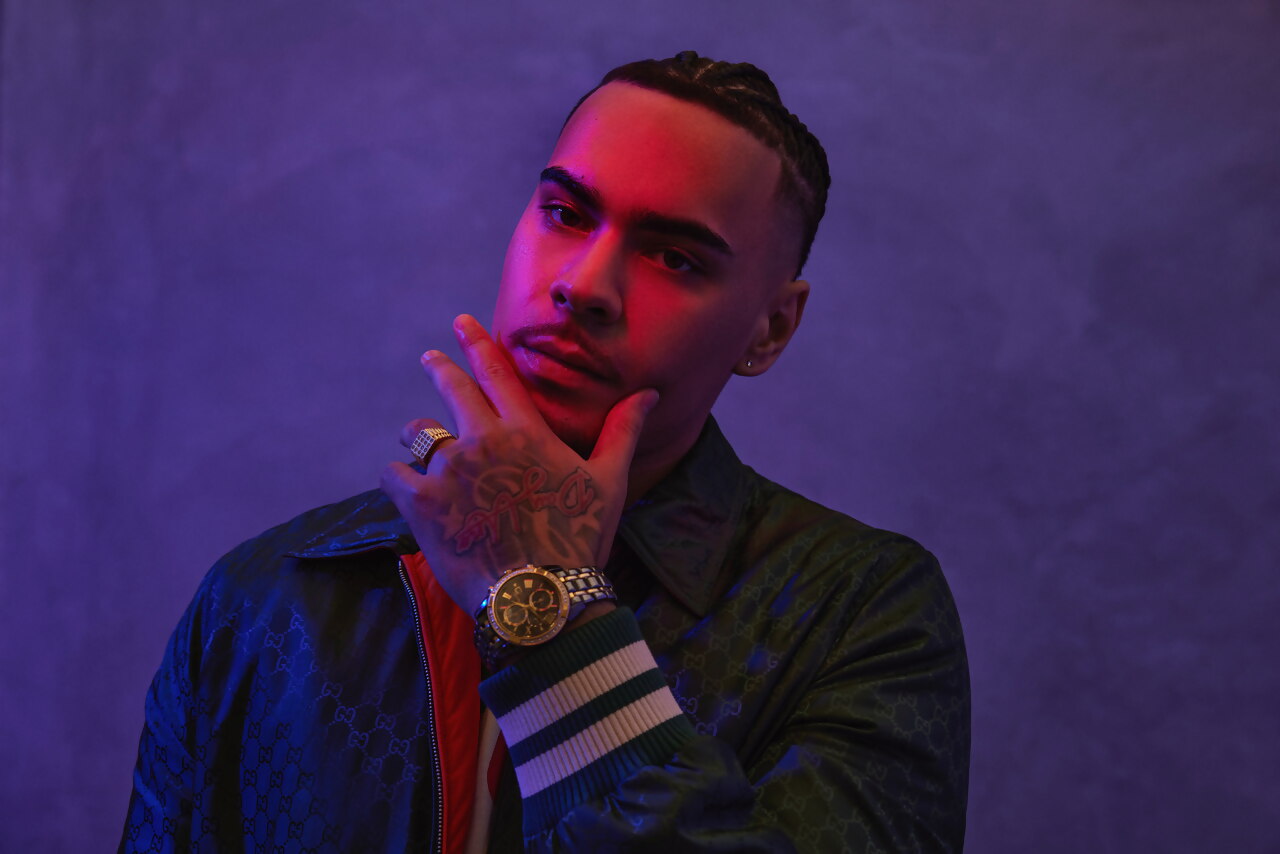
Aside from music, what can’t Day1 live without? What allows you to get lost in it?
My answer to that would be music because that’s exactly what you described. But apart from that, my PS5, anime and family.
I also read you were inspired heavily by your dad’s music taste, stemming from your Māori culture, plus a spread of Hip Hop artists like A Boogie, Speaker Knockerz. Would it be fair to say these influences still inspire your artistry now, or do you feel like you’ve picked up on more inspirations on the way?
I would say Drake and D Block Europe. That’s all I can really name at the moment. Not really too much, because I’m… Ah, I’m trying to create my own thing. But the artists I grew up listening to, and my cultural background, definitely has an influence on my music.
I get an impression Māori culture exists in a similar way a lot of cultures do in the UK – small but prominent and impressionable. What would you say are the markers of Māori culture in your ends, or areas, in Australia?
There’s lots of Māori people making an impact, but in terms of the music side, I would love to see more Māori’s have a crack at music and not to feel shy or like it’s impossible to do. I feel like most of the areas need an alternative route, whether its entertainment, sport or business – somewhere positive to put our energy and talent.

What do you make of your part of the Australian music scene, and what was the trigger point for you to start your career?
I think at first, when everything started picking up in Australia, I already had a song [‘Boss’] and I thought, ‘Yeah, this could be the one, it makes sense.’ Literally, I went to a spot in our area where everyone was chilling at, made a video, and captured scenes of our block life there. We put it on YouTube and Spotify, and the song got five million streams. That was our first drop too.
Grime and Drill has been transformative in the UK, changing the way society sees our culture and scene. It speaks volumes for the realities people face. Considering all of this, what are your ambitions as an artist?
I mean, honestly… I put my city and country on my back everywhere I go. I really just want to take it global. We’re so separated from everywhere around the world. You go anywhere in Europe and people say, ‘You’re from Australia? That’s crazy.’ I want to make the music so known that everyone sees Australians are on.
I want to create a scene for the people of Australia, I want to inspire them. If I can do it, you can do it too. It’s really just trying to go worldwide, build the best career I possibly can, and try to get a number one in general, all over the world.
What are the pressures in Australia when it comes to class, race, and identity in general? How do you feel the reaction has been to you, your peers, and the wave of music/drill scene in general from the Australian public and authorities?
It’s something I’m definitely very conscious of. At the moment, they’ve really been shutting down shows – I can’t really even say much. Stopping these artists from doing shows is leading them back to the same position they were in. You’re blocking them off from changing things.
We’ve become aware of that, but we haven’t personally had too many problems with shows – my music is kind of directed differently. We’re showing that we put back into the community, helping youth support systems. My main thing is inspiring people to follow their dreams. We don’t have too many problems with that, but I’m definitely conscious of how I’m viewed, how I direct myself toward the path I want to take. It’s definitely my way.
Imagine it’s 2030. You’ve seen your scene develop, you’ve grown as an artist with a career spanning a decade. What are some of the things you hope to achieve by such a time?
Man, I’m tryna work with Drake one day, that’s definitely a goal I want to achieve. I’d like to hit up a world tour one day in that timeframe as well. I definitely want to start my own clothing line and I’m actually in the process of doing that. My team and I are really locked into growing the scene out here to compete and be respected globally.
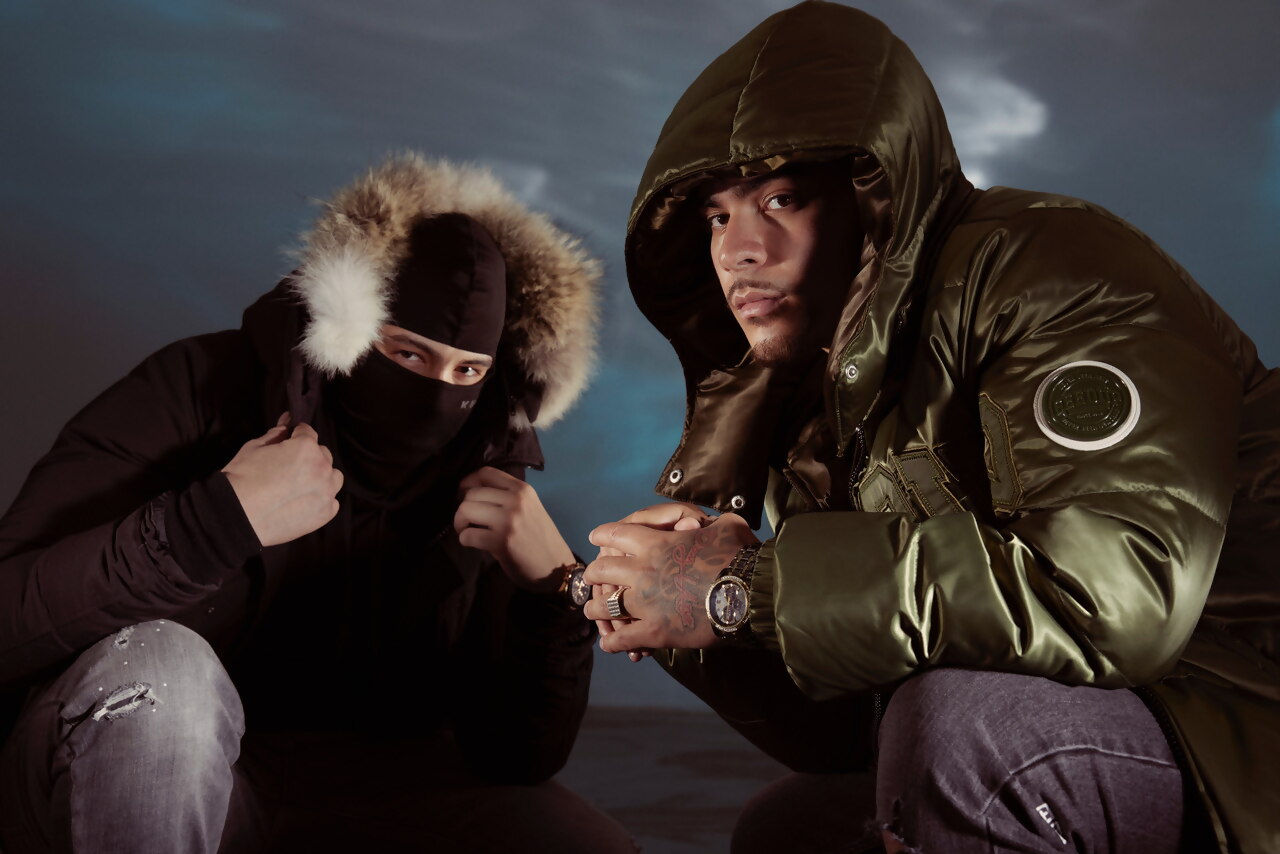
What are the key takeaways you’ve gained from being an artist so far in your career?
I think something important, mentality-wise, is not to care or respond to certain hateful comments and just realise people hate when you’re doing better than them, and that’s just the way life is. I think giving that sort of thing too much attention lowers your self-esteem and doesn’t solve anything. I wish I knew this prior to music, but it’s something I’ve had to learn along the way.
I think the methods I use now to record and write songs would have been crazy to know when I first started, but I feel it’s something you can only learn early by putting in the hard work. I’ve learnt a lot from producers, engineers, and other artists I work with. I’m constantly learning to be better so I would recommend anyone starting out to soak up as much knowledge as you can.
What truly excites you within your scene, and how is it helping uplift you to do your thing?
I feel like what I want to see is people in Australia that are upcoming artists – if you came from a struggle, even if you didn’t – just explaining their story, what they’re going through, what kind of challenges they had on the way. People will appreciate it more. Because I think most of the time, people want to be rappers but they’re not speaking truth to themselves or their environment. They’re purely doing it out of want of fame. But when you express yourself, people relate to it.
Everything kind of blew up during COVID in Australia, so we never had an international look until two years ago. People aren’t following it as much. I feel like we’re in the position where the UK scene was ten years ago, where they’d rather listen to American music. But now it’s not the case. For us, we’d rather listen to Australian and American music.
People were forgetting that Australia is where we are from; we should be very representative of that culture, embracing something you can actually relate to. I feel like that’s what artists need to keep in mind, you need to be relatable to the people around you so they can relate to you, because you’re going to have to start in Australia if you want to make it in the rap industry.

